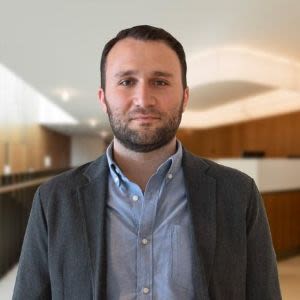








Clinic Les Alpes
Verified Center
This provider's information has been quality-checked by Recovery.com's Research Team for accuracy and completeness, including center verification through appropriate third-party organizations.
Treatment Focus
This center treats substance use disorders and mental health conditions. You'll receive individualized care catered to your unique situation and diagnosis, learn practical skills for recovery, and make new connections in a restorative environment.
Primary Level of Care
Offering intensive care with 24/7 monitoring, residential treatment is typically 30 days and can cover multiple levels of care. Length can range from 14 to 90 days typically.
Treatment Focus
This center treats substance use disorders and mental health conditions. You'll receive individualized care catered to your unique situation and diagnosis, learn practical skills for recovery, and make new connections in a restorative environment.
Primary Level of Care
Offering intensive care with 24/7 monitoring, residential treatment is typically 30 days and can cover multiple levels of care. Length can range from 14 to 90 days typically.
Private Pay
You pay directly for treatment out of pocket. This approach can offer enhanced privacy and flexibility, without involving insurance. Exact costs vary based on program and length of stay. Contact the center for specific details.
Clinic Les Alpes
Clinic Les Alpes
About Clinic Les Alpes
Situated in a secluded and beautifully designed environment near Montreux, Clinic Les Alpes provides private rehabilitation for substance-based addictions, behavioural dependencies, eating disorders, and mental health conditions. Rated among the top wellbeing and rehabilitation centres for high-net-worth individuals, they offer the ultimate combination of luxury and care.
Receive Bespoke Care for Mind, Body & Spirit
Clinic Les Alpes approaches each client as a unique individual, giving them a tailor-made programme to address the interplay between mind, body and spirit. The therapeutic experience includes psychiatric care, advanced medical testing, individual and group psychotherapy using a variety of approaches, 12-Step fellowships, medicalised hypnosis, art and music therapy, equine therapy, and outdoor activities. Clients leave with deeper insight into their addiction and any co-occurring mental health disorders, and the tools to break free from old patterns and take a new path.
Relax with Views of the Alps & Lake Geneva
Clinic Les Alpes is located in a historic alpine chateau with state-of-the-art treatment facilities and imaginatively landscaped grounds. Each private bedroom has been carefully designed to make clients feel safe and at home. Beautiful common spaces include an à la carte restaurant, library, drawing room, study and terrace—as well as a spa, gym, yoga and Pilates room, infinity pool, and a serenity space carved into the mountain, where clients can participate in guided practices overlooking the Alps.
Be Prepared for Life Beyond Treatment
To support clients’ long-term success, Clinic Les Alpes offers aftercare planning that includes resources to navigate the road ahead with confidence and strength. Plans include relapse prevention strategies, ongoing counselling, psychiatric consultations, support groups, and more. Clinic Les Alpes also offers sober companions to travel home with the client for their transition back to daily life. And clients can return to the clinic for short ‘booster’ stays as a refresher.
Note: All admissions are subject to a medical assessment, particularly eating disorders, to determine treatment needs and goals.

Highlights from the Center
Highlights
These highlights are provided by and paid for by the center.
Bespoke With Exclusive Staff
Perfect for UHNWI
Utmost Confidentiality
Executive Treatment
Center Overview
Treatment Focus
This center treats substance use disorders and mental health conditions. You'll receive individualized care catered to your unique situation and diagnosis, learn practical skills for recovery, and make new connections in a restorative environment.

Clinic Les Alpes
Pricing and Program Length
Estimated Center Costs
The cost listed here (CHF 49’500 per week), is an estimate of program cost. Center price can vary based on program and length of stay. Contact the center for more information. Recovery.com strives for price transparency so you can make an informed decision.




Recovery.com Verified Listing
Recovery.com verified that the name, location, contact information and license to operate for this treatment provider are valid and up-to-date.

Licensed
Recovery.com is an independent, third-party mental health resource. Verification does not imply endorsement and does not guarantee the quality of treatment services.
Meet Your Care Team

Dr. Randolph Willis
Medical Director / Psychiatrist
Doctor of Medicine (MD), Psychiatry

Alexandre Tavassoli
Chief Operating Officer
M. Health Management

Dominique André
Counsellor
Master of Sciences in Clinic Psychology and Psychopathology from the University of Lausanne

Dr. Victor Leroy
Psychiatrist
M.D., Postgraduate Diploma in Adult Psychiatry & Psychotherapy, Member AVMCA, COROMA, & FORDD &

Dr. Sylvain Atrash
General Practitioner
M.D.

Brittany Hunt
Head of Quality, Innovation & Research Department
Post-Graduate Certificate Health Sciences, Mental Health & Addictions, Registered Practitioner DAPAANZ, Member New Zealand Drug Foundation

Jeff van Reenen
Therapist
Master of Science with Merit (MSc) / Post Graduate Dip / Dip in Addiction Psychology and Counselling, Advanced Practitioner Member MFDAP APM, National Counsellor Accreditation Certified (NCAC)

Mert Ulusoy
Therapist
M. Psych., BACP Registered Psychotherapist, Registered Clinical Psychologist (Turkey), Member Federation for Existential Therapy in Europe (FETE), British Psychological Society, Turkish Psychological Association

Malina Cucinotta
Admissions
Swiss Higher Diploma in International Hotel Management, Bachelor´s Degree in Business Administration

Natalia Salamon
Therapist
Master´s degree in Clinical Psychology

Sónia Moura
Admissions
Certificate in Assistant - People Management, Business Degree
Your Care Options
Specializations
Alcohol
Using alcohol as a coping mechanism, or drinking excessively throughout the week, signals an alcohol use disorder.
Anxiety
Anxiety is a common mental health condition that can include excessive worry, panic attacks, physical tension, and increased blood pressure.
Burnout
Burnout entails mental and physical exhaustion, and leads to a severe lack of fulfillment. This condition is often caused by overwork.
Depression
Symptoms of depression may include fatigue, a sense of numbness, and loss of interest in activities. This condition can range from mild to severe.
Drug Addiction
Drug addiction is the excessive and repetitive use of substances, despite harmful consequences to a person's life, health, and relationships.
Prescription Drugs
It's possible to abuse any drug, even prescribed ones. If you crave a medication, or regularly take it more than directed, you may have an addiction.
Trauma
Some traumatic events are so disturbing that they cause long-term mental health problems. Those ongoing issues can also be referred to as "trauma."
Who We Treat
Older Adults
Addiction and mental health treatment caters to adults 55+ and the age-specific challenges that can come with recovery, wellness, and overall happiness.
Co-Occurring Disorders
A person with multiple mental health diagnoses, such as addiction and depression, has co-occurring disorders also called dual diagnosis.
Executives
Executive treatment programs typically directly support the needs of people who manage businesses and may provide flexible schedules and office space to allow work during treatment.
LGBTQ+
Addiction and mental illnesses in the LGBTQ+ community must be treated with an affirming, safe, and relevant approach, which many centers provide.
Men and Women
Men and women attend treatment for addiction in a co-ed setting, going to therapy groups together to share experiences, struggles, and successes.
Midlife Adults
For adults ages 40+, treatment shifts to focus on the unique challenges, blocks, and risk factors of their age group, and unites peers in a similar community.
Professionals
Busy, high-ranking professionals get the personalized treatment they need with greater accommodations for work, privacy, and outside communication.
Treatment Services
Detox
Detox fully and safely removes toxic substances from the body, allowing the next steps in treatment to begin with a clean slate.
Detox (on-site with residential)
This is often the first step of addiction treatment. For many people, it's dangerous to detox without proper medical support.
Licensed Primary Mental Health
Some primary care providers offer mental health diagnosis and treatment. This can prevent patients from developing more serious conditions.
Residential
In a residential rehab program, patients live onsite, with access to daily treatment and 24-hour care. An average stay is 30-90 days.
Approaches
Evidence-Based
A combination of scientifically rooted therapies and treatments make up evidence-based care, defined by their measured and proven results.
Experiential
Expressive tools and therapies help patients process past situations, learn more about themselves, and find healing through action.
Family Involvement
Providers involve family in the treatment of their loved one through family therapy, visits, or both–because addiction is a family disease.
Holistic
A non-medicinal, wellness-focused approach that aims to align the mind, body, and spirit for deep and lasting healing.
Individual Treatment
Individual care meets the needs of each patient, using personalized treatment to provide them the most relevant care and greatest chance of success.
Minnesota Model
The Minnesota Model encourages abstinence and family-wide healing through the 12-Steps, group therapy, and individualized, psychological treatment.
One-to-One
Patients work with their treatment team members on a 1-on-1 basis, keeping their journey and treatment fully private and personalized.
Personalized Treatment
The specific needs, histories, and conditions of individual patients receive personalized, highly relevant care throughout their recovery journey.
Therapeutic Community
Therapeutic communities allow patients to contribute to the success and progress of their community, through healthy behaviors or even basic chores.
Therapies
1-on-1 Counseling
Patient and therapist meet 1-on-1 to work through difficult emotions and behavioral challenges in a personal, private setting.
Meditation & Mindfulness
A practiced state of mind that brings patients to the present. It allows them to become fully aware of themselves, their feelings, and the present moment.
Mindfulness Therapy
This ancient practice can be mental, emotional, and even spiritual. In meditation, you focus your attention on the present moment without judgement.
Adventure Therapy
This experiential approach uses the physical and emotional challenges of outdoor activities as tools for personal growth.
Attachment-Based Family Therapy
ABFT is a trauma-focused therapy that teaches you to form healthy relationships by rebuilding trust and healing attachment issues formed in childhood.
Animal Therapy
Animals can inspire trust and self-worth. In this experiential therapy, guided interactions are used to improve social skills and emotion regulation.
Art Therapy
Visual art invites patients to examine the emotions within their work, focusing on the process of creativity and its gentle therapeutic power.
Biochemical Restoration
This treatment restores any brain and body deficiencies caused by substance abuse through a full detox, followed by supplement replenishment.
Conditions We Treat
Pornography Addiction
A person with a porn addiction is emotionally dependent on pornography to the point that it interferes with their daily life and relationships.
Schizophrenia
Schizophrenia is a serious mental health condition that causes hallucinations, delusions, and disordered thinking.
Grief and Loss
Grief is a natural reaction to loss, but severe grief can interfere with your ability to function. You can get treatment for this condition.
Personality Disorders
Personality disorders destabilize the way a person thinks, feels, and behaves. If untreated, they can undermine relationships and lead to severe distress.
ADHD, ADD
ADHD is a common mental health condition caused by dopamine imbalance. Common symptoms include inattention, hyperactivitiy, and impulsivity.
Anger
Although anger itself isn't a disorder, it can get out of hand. If this feeling interferes with your relationships and daily functioning, treatment can help.
Anxiety
Anxiety is a common mental health condition that can include excessive worry, panic attacks, physical tension, and increased blood pressure.
Bipolar
This mental health condition is characterized by extreme mood swings between depression, mania, and remission.
Substances We Treat
Alcohol
Using alcohol as a coping mechanism, or drinking excessively throughout the week, signals an alcohol use disorder.
Benzodiazepines
Benzodiazepines are prescribed to treat anxiety and sleep issues. They are highly habit forming, and their abuse can cause mood changes and poor judgement.
Chronic Relapse
Consistent relapse occurs repeatedly, after partial recovery from addiction. This condition requires long-term treatment.
Co-Occurring Disorders
A person with multiple mental health diagnoses, such as addiction and depression, has co-occurring disorders also called dual diagnosis.
Cocaine
Cocaine is a stimulant with euphoric effects. Agitation, muscle ticks, psychosis, and heart issues are common symptoms of cocaine abuse.
Drug Addiction
Drug addiction is the excessive and repetitive use of substances, despite harmful consequences to a person's life, health, and relationships.
Ecstasy
Ecstasy is a stimulant that causes intense euphoria and heightened awareness. Abuse of this drug can trigger depression, insomnia, and memory problems.
Heroin
Heroin is a highly addictive and illegal opioid. It can cause insomnia, collapsed veins, heart issues, and additional mental health issues.
Languages
Aftercare
Care Designed for Your Needs
Personal Amenities
Amenities
Special Considerations
Clients can bring their own pet(s)
For greater comfort and healing, pet-friendly treatment centers welcome dogs and animal companions to stay with their owners while they attend treatment.
Couples program
Using gentle clinical care, therapists guide patients and their partner through guided sessions to address issues and work towards lasting solutions.
Family Member Stays
Treatment providers welcome family members to stay on-site to better the experience and success of patients and their families as a whole.
Flexible technology policies
Centers with flexible technology policies allow professionals to stay in touch with work and give patients a greater sense of connection and normalcy.
Activities
Yoga
Yoga is both a physical and spiritual practice. It includes a flow of movement, breathing techniques, and meditation.
Off-Site Activities
Yoga
Yoga is both a physical and spiritual practice. It includes a flow of movement, breathing techniques, and meditation.
Off-Site Amenities
Learn More About the Center
The 12 Stages of Burnout
Discover how subtle daily stressors can quietly compound into full emotional and physical exhaustion.
Review Pricing and Insurance Option
Read more about Clinic Les Alpes pricing and what’s covered. Insurances that are accepted for payment include: AXA International, BUPA, and CIGNA.
Find Effective Alcohol Treatment
Explore the key elements of alcoholism care that promote lasting recovery and personal transformation.
Understand Prescription Drug Risks
Learn how use of medications like Valium can impact health and why detox is essential for recovery.
What people are saying
Treatment
4.5
Accommodations
4.7
Food & Nutrition
4.6
Value
4.4
Pros
- Beautiful Location (6)
- Gourmet & Nutritious Food (5)
- Luxurious Accommodations (4)
- Personalized (4)
Cons
- Limited Time to Work (3)
A.L.
Treatment in 2025 • (30) • Reviewed 06/18/25
Former Client
•Entertainment
T.S.
Treatment in 2024 • (30 days) • Reviewed 06/03/25
Former Client
•London
Alex W
Treatment in 2024 • (30 days) • Reviewed 01/28/25
Former Client
Etti
Treatment in 2024 • (30 days) • Reviewed 02/21/25
Former Client
•CEO
Esther
Treatment in 2024 • (14 days) • Reviewed 01/28/25
Former Client





